History vs. Apologetics
History vs. Apologetics
The Holocaust, the Third Reich,
and the Catholic Church
David Cymet

Published by Lexington Books
A division of Rowman & Littlefield Publishers, Inc.
A wholly owned subsidiary of The Rowman & Littlefield Publishing Group, Inc.
4501 Forbes Boulevard, Suite 200, Lanham, Maryland 20706
http://www.lexingtonbooks.com
Estover Road, Plymouth PL6 7PY, United Kingdom
Copyright 2010 by Lexington Books
All rights reserved. No part of this book may be reproduced in any form or by any electronic or mechanical means, including information storage and retrieval systems, without written permission from the publisher, except by a reviewer who may quote passages in a review.
British Library Cataloguing in Publication Information Available
Library of Congress Cataloging-in-Publication Data
Cymet, David, 1931
History vs. apologetics : the Holocaust, the Third Reich, and the Catholic Church / David Cymet.
p. cm.
Includes bibliographical references and index.
ISBN: 978-0-7391-3293-7 (cloth : alk. paper)
eISBN: 978-0-7391-3295-1
1. Catholic ChurchRelationsJudaism. 2. JudaismRelationsCatholic Church. 3. Christianity and antisemitismHistory. 4. Pius XII, Pope, 1876-1958Relations with Jews. 5. National socialism and religion. 6. Holocaust, Jewish (19391945) 7. World War, 1939-1945Religious aspectsCatholic Church. I. Title.
BM535.C88 2010
940.5318dc22
2009027464
 The paper used in this publication meets the minimum requirements of American National Standard for Information SciencesPermanence of Paper for Printed Library Materials, ANSI/NISO Z39.48-1992.
The paper used in this publication meets the minimum requirements of American National Standard for Information SciencesPermanence of Paper for Printed Library Materials, ANSI/NISO Z39.48-1992.
Printed in the United States of America
And God said to Cain: Where is Abel your brother? And he said, I dont know, am I my brothers keeper? And He said: What have you done? The voice of your brothers blood cries to me from the earth.
Genesis 9: 4-10
Thou shall not stand idly by the blood of thy neighbor.
Leviticus 19:16
O earth, cover not my blood nor let my outcry come to rest!
Job 16:18
Contents
Acknowledgments
This book on the Holocaust and the Catholic Church is the product of seven years of full-time research and writing. I am indebted to the many scholars who preceded me in this field whose names are mentioned in the notes. My gratitude goes to my family who inspired and encouraged me to bring this book to fruition, in particular my wife Leah and my children. Very special thanks to my daughter Sara Rachel Tenenbaum who generously gave of her time and put her professional computer skills to assist me in producing the typed manuscript.
I wish to thank editorial director of Lexington Books Julie E. Kirsch and my editors Jessica Bradfield and Paula Smith-Vanderslice, and production editor Victoria Koulakjian. My thanks to Dr. Michael Berenbaum, former director of the Research Institute of the U.S. Holocaust Memorial Museum in Washington, D.C. for his comments on the book. My thanks to the U.S. Holocaust Memorial Museum for granting permission to use the photographs included in the book. This book not only bears witness to the Holocaust but is also a reminder that we must always stay vigilant. Its final message is not of doom but of hope. I pray that my grandchildren will draw spiritual strength and inspiration from the book as they grow up.
Dr. David Cymet
Brooklyn, N. Y.
February 2009
Preface
After the annihilation of six million Jews in Christian Europe, there were many questions to be asked and issues to be raised with the Catholic Church, but in view of the desperate situation that the Jewish people faced after the war, it seemed wiser to postpone such reckoning for better days. Throughout history, the Jewish side was never eager to get involved in controversies much less in confrontations with the Catholic Church. Even the so-called dialogues were fraught with dangers. The lessons drawn from historical experience advised against them. Neither the Second World War nor the Holocaust altered this prudent attitude rooted in historical memory. A veil of silence was drawn over the role of institutional Catholicism in the Holocaust in spite of the momentous significance of the question. History took second place at that moment.
The last thing Jewish leaders wanted after the Shoah was to engage the Church in historical reckoning and recrimination for past offenses and increase the hostility of the Church. More urgent priorities stood at that moment before a wounded people involved in a desperate struggle for survival. Many of the Holocaust survivors in the DP camps were trying to pry open the doors of Mandate Palestine, while others were desperately knocking doors asking for visas to rebuild their shattered lives in other continents. Jewish orphans left with Christian families or institutions by their parents before being sent to death were waiting to be brought back to their people and their faith. A fledgling Jewish state underway was in the midst of its painful birth pangs. Even if for no other reason than the entrenched traditional opposition of the Church to the resettlement of the Jews in the Holy Land and its age-old resistance to return Jewish children in Christian hands to the faith of their parents, it seemed wiser to postpone such reckoning for better days.
It was not a Jew but a German Christian, Rolf Hochhut, who in his youth had belonged to the Nazi Jungvolk, who dared to ask in 1963, seventeen years after the end of World War II and five years after Pius XIIs death, the first disturbing questions on Pius XIIs response to the Holocaust. His drama Die Stellvertreter, which was brought to the scene for the first time in Berlin on February 20, 1963, centered on the Popes obstinate silence in the face of what Winston Churchill called the greatest crime registered in historythe systematic annihilation of the Jewish people by the Germans and their helpers. Published in book-form that year, it was translated into more than twenty languages and brought to the scene the world over.
The Popes silence was a question of burning concern during the war long before Die Stellvertreter was brought to the scene. Pius XII received during the war countless heartrending appeals from European Jewish communities in peril of death, from their rabbis and lay leaders as well as from Allied leaders. These appeals to the head of the Catholic Church were not about Jews being socially discriminated and denied access to universities or exclusive country clubs, but desperate SOS life-and-death pleas of help against Christians who were exterminating every living Jew in Christian Europe for no other reason than having been born Jewish. Did Pius XII live up in face of such a crime to the moral standards that he himself set down before the Italian Ambassador Dino Alfieri, not long after he rose to the papal throne, on May 13, 1940?
The Pope is free, and God will pass judgment on him if he does not react to evil or does not do what he believes is his duty. Mind you we will all, all, be subject to Gods judgment, and earthly successes cannot save us from this terrible judgement.
Hochhuths verdict on the role played by Pius XII in the Holocaust was devastating. The refusal of Pius XII, as the leader of Christianity, to confront Germany during the war years with the enormity of its crime through a public condemnation took center stage in Hochhuths drama. The annihilation of the Jewish people happened in the heart of Europe, the cradle and center of Christian civilization. At the zenith of his power in 1942, Hitler ruled over the largest Catholic community in the world with more than 200 million Catholics. In Germany more than 90 percent of the population identified themselves officially in 1939 as Christian and 43.1 percent as Catholic. The allies of Nazi Germany in Europe, such as Italy, Hungary, Vichy France, Slovakia, and Croatia, were overwhelmingly Catholic. So were occupied Poland and its Baltic neighbors.
Next page

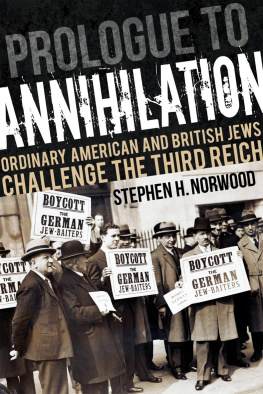
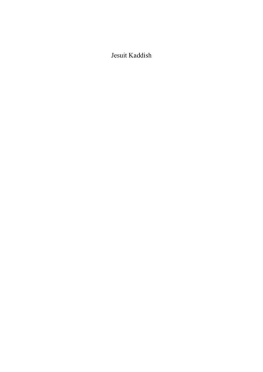
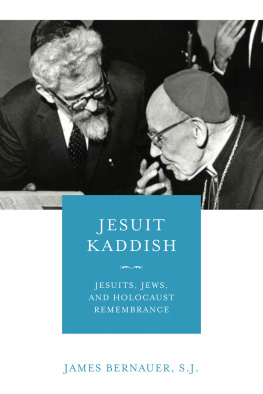
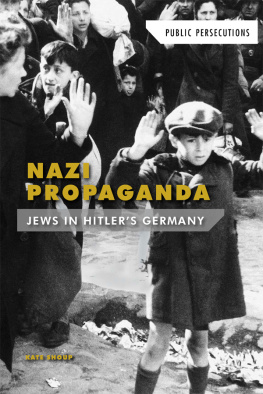
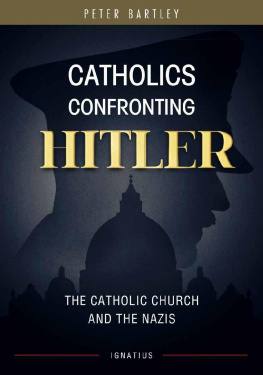
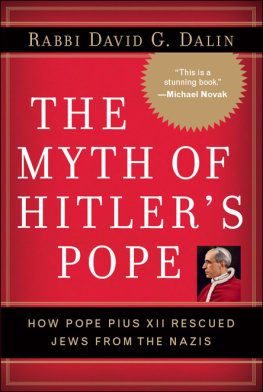
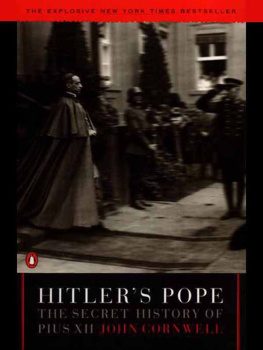
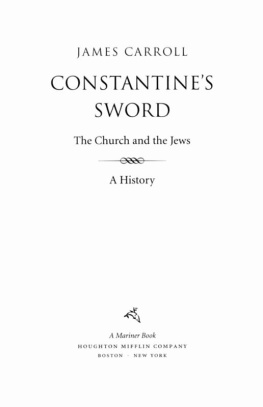

 The paper used in this publication meets the minimum requirements of American National Standard for Information SciencesPermanence of Paper for Printed Library Materials, ANSI/NISO Z39.48-1992.
The paper used in this publication meets the minimum requirements of American National Standard for Information SciencesPermanence of Paper for Printed Library Materials, ANSI/NISO Z39.48-1992.